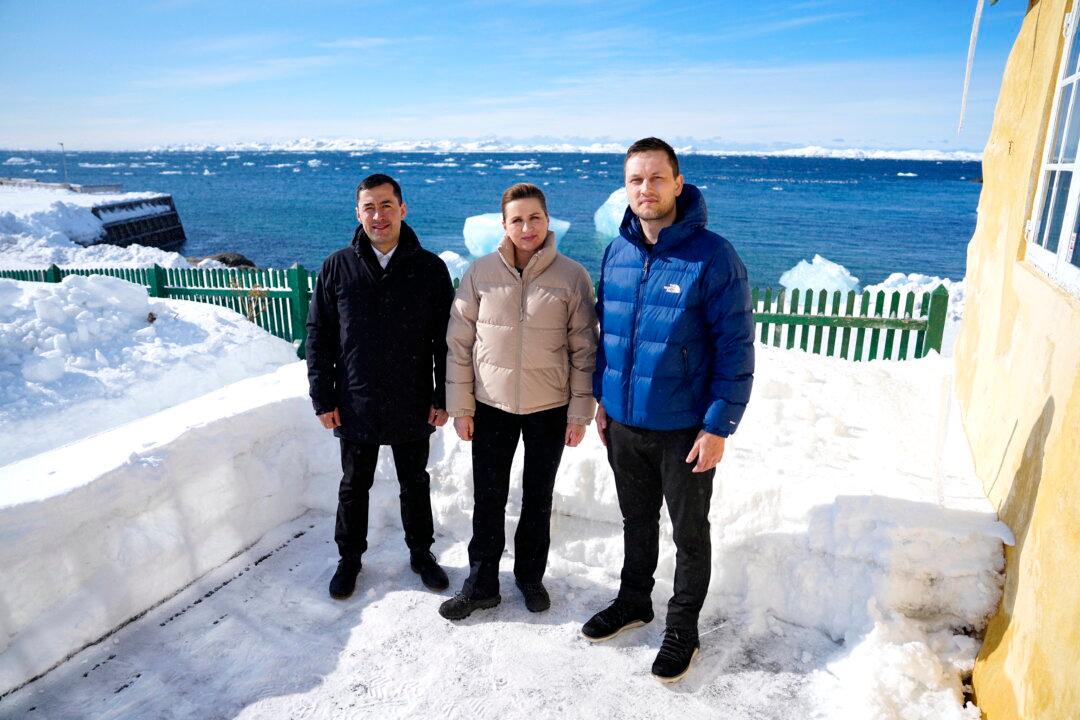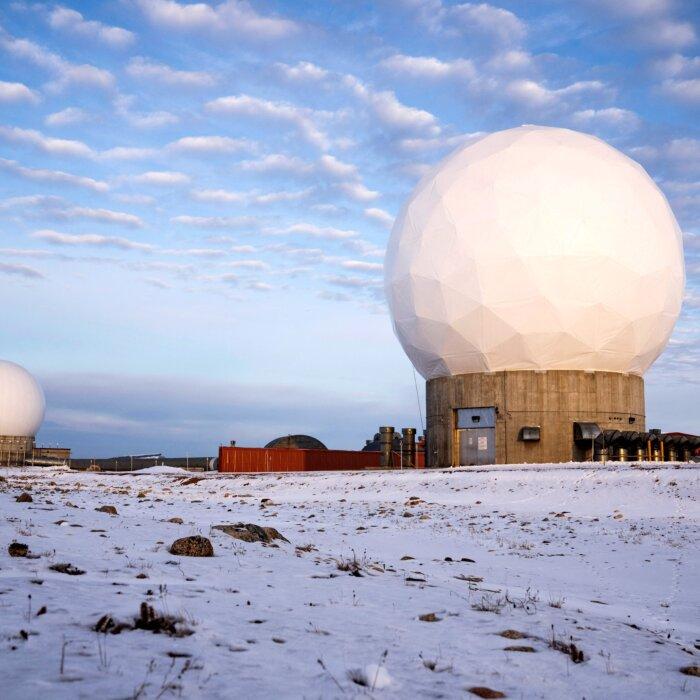Danish Prime Minister Mette Frederiksen vowed to support Greenland during a trip to the capital, Nuuk, on April 2, following the Trump administration’s repeated statements that it is seeking control of the vast Arctic territory.
Frederiksen announced her visit shortly after U.S. Vice President JD Vance visited a U.S. air base in the semiautonomous region of the Scandinavian kingdom last week and accused Copenhagen of shortchanging Greenlanders, which drew scrutiny from authorities in Denmark and Greenland.
“The U.S. shall not take over Greenland. Greenland belongs to the Greenlanders,” Frederiksen told reporters in Nuuk soon after her arrival on the island.
The prime minister also pledged to do her part to guarantee equal rights to Greenlanders and Danes within Denmark’s sphere of influence.
“Most of all, we need to discuss the foreign and security policy situation, geopolitics, and how we approach this very, very difficult task together because that is what it is all about now,” Frederiksen said.
Greenland is an enormous, mineral-rich, and strategically important island, which U.S. President Donald Trump has described as critical to U.S. security.
Although it’s part of the continent of North America, the region, about three times the size of Texas, belongs to the Kingdom of Denmark.
Frederiksen is set to meet Greenland’s incoming leader, Jens-Frederik Nielsen, after an election last month that returned a new coalition government.
That new coalition is expected to formally assume office on April 7.
She will also meet with the next Naalakkersuisut, the Greenlandic Cabinet, in a visit due to last until April 4.
“I have the deepest respect for how the Greenlandic people and Greenlandic politicians are handling the great pressure on Greenland.”
Nielsen has said he welcomes Frederiksen’s visit, saying on March 31 that Denmark remains “Greenland’s closest partner.”
On the agenda are talks with Nielsen about future cooperation between Nuuk and Copenhagen.
For years, the people of Greenland, with a population of about 57,000, have been working toward eventual independence from Denmark, with many Greenlanders feeling they have been historically mistreated under Danish rule.
However, the Trump administration’s allusions to annexing the island, and not ruling out military means to do so, have concerned many Greenlanders and Danes alike.
The incoming new government has stated that it wishes to slow the pace of eventual independence, with Nielsen telling Reuters on March 31 that Greenland will strengthen its ties with Copenhagen until it can fulfill its ultimate wish to become a sovereign nation.
Meanwhile, he said that Greenland wishes to establish a respectful relationship with the United States.
“Talking about annexation and talking about acquiring Greenland and not respecting the sovereignty is not respectful. So let’s start by being respectful to each other and build up a great partnership on everything,” he said.
The political group in Greenland that is most sympathetic to Trump’s goal for the region is the Naleraq party, which advocates a swift path toward independence.
They were excluded from coalition talks to form the next government.
Peter Viggo Jakobsen, associate professor at the Danish Defense Academy, told The Associated Press last week that the Trump administration’s aspirations for Greenland could backfire and push the more moderate parties in the territory closer to Copenhagen.
“Trump has scared most Greenlanders away from this idea about a close relationship to the United States because they don’t trust him,” Jakobsen said.
Frederiksen, who has said it is up to the people of Greenland to determine their own future, labeled Vance’s description of Denmark “not fair.”
Opinion polls show that a majority of Greenlanders support independence from Denmark, but many warn against seeking self-determination too quickly, fearing Greenland could be worse off.
An even greater majority opposes joining the United States.







